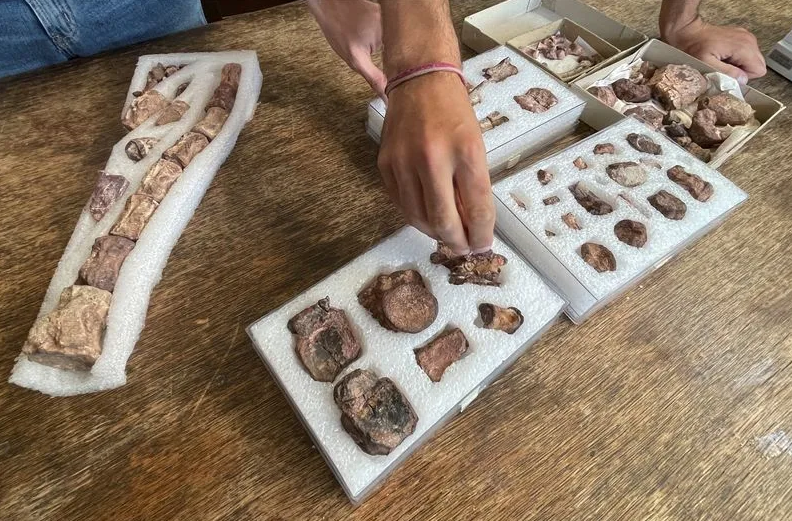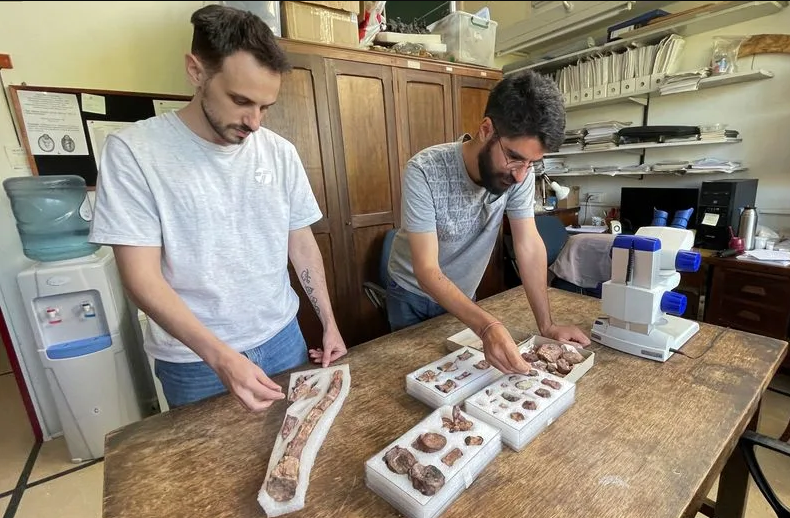BUENOS AIRES -- Paleontologists from Argentina announced the discovery of a new medium-sized herbivorous dinosaur, which was a fast runner and lived about 90 million years ago in the Late Cretaceous period in present day Patagonia.
The animal, named Chakisaurus nekul, was found in the Pueblo Blanco Natural Reserve, in the southern province of Río Negro, an area rich in fossils where many mammals, turtles, and fish have been found along with other species of dinosaur.
It is estimated that the largest Chakisaurus reached 2.5 or 3 meters long and was 70 centimeters high (8 to 10 feet long and 27 inches high).
Studies of Chakisaurus yielded new findings indicating that it was a fast runner and had its tail curved unusually downward.
"This new species, Chakisaurus nekul, was a bipedal herbivore that among its most important characteristics had a tail that, unlike other dinosaurs, which was horizontal, had a downward curvature," said Rodrigo Álvarez, author of the study.
"It is something super new for these animals. In addition, it is known that it was a good runner, which was something it needed because it lived with a large number of predators and its only defense was to be faster than them."
|
|
| Scientists discover new herbivorous dinosaurs that roamed Argentina 90 million years ago. Photo: Reuters |
The dinosaur's name derives from Chaki, which is a word from the Aonikenk language, of the indigenous Tehuelche people, which means "old guanaco", a reference to a medium-sized herbivore mammal found in the region. Nekul means "fast" or "agile" in the Mapudungún language, of the local Mapuche people.
"He had very strong hind limbs and a tail with an anatomy that allowed him to maneuver it to the sides and so be able to balance during races," Sebastián Rozadilla, co-author of the publication, explained to Reuters.
A team of Argentine paleontologists with the support of the National Geographic Society, made the discovery initially in 2018, but recently unveiled their finding in the respected journal Cretaceous Research.




















































